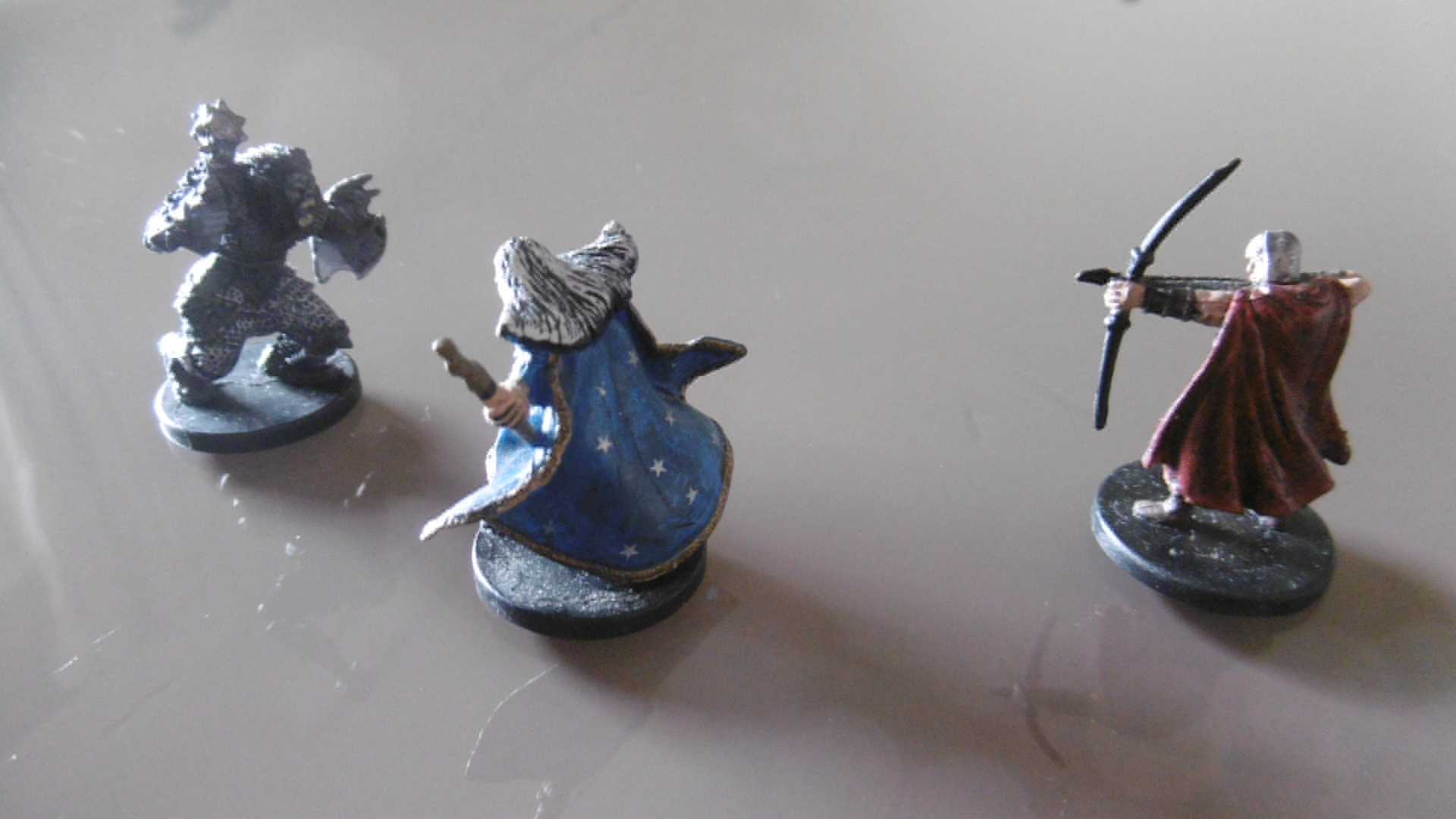“Once the party is engaged in melee, arrows cannot be fired into the fight because of the probability of hitting friendly characters.”
—Holmes, 20
“Kaytar attacks it with his dagger.”
“And I shoot an arrow at it.”
“You can’t fire into melee.”
“Why not?”
“You might hit Kaytar.”
“He’ll live!”
I was never big on tinkering with the game rules. But the first rule I ever questioned was no missile fire into melee.
For me, two big attractions to the game are that it simulates a reality of heroic fantasy and that, through a character, you can do anything within the realm of possibility. A well aimed arrow between comrades to save the day seems to fall within its purview.
In the scene above, Garth relented and let me roll the missile attack.
“A 9, you miss,” he said. “There’s a fifty-fifty chance you hit Kaytar.”
It was an embarrassing moment. All at once, I fumbled an opportunity to make a difference, put Kaytar in jeopardy, and interrupted play with the argument—however brief—plus an extra dice roll.
I don’t find in the OD&D booklets any reference to firing into melee. I turn, therefore, to Chainmail, which reads: “Missiles cannot be fired into a melee” (16). Terse and unambiguous for once—we count ourselves lucky this day.
Holmes, quoted at top, carried the Chainmail rule forward. But later, on the same page, the text is less definitive:
“Remember that spells and missiles fired into a melee should be considered to strike members of one’s own party as well as the enemy” (20).
The Editor doesn’t give us any kind of rule to go with the permission. We might take “as well as” to mean the chance to hit an ally is equal to the chance to hit the enemy.
I could have missed it, but I don’t see a reference to firing into melee in AD&D or in B/X. Firing into melee is allowed in 2nd Edition AD&D, but it’s a “risky proposition.”
It’s also awkward. Before the missile is fired, allies and enemies are counted and weighted by size to calculate the chance that the impending attack roll will be against a party member’s AC (PHB, Chapter 9: Combat, Firing into a Melee). Depending on the result, we may have a distasteful situation where a player must roll an attack on a friend’s character.
A reader points me to a page in the AD&D DMG, where Gygax tells us how to handle “the discharge of missiles into an existing melee” (63). The system is similar to that of 2nd Edition, though more wordy. [05:54 29 January 2022 GMT]
From memory, 3E (in which I include 3.5) allows firing into melee with a simple −4 to the attack roll and no possibility to hit an ally. An optional rule allows for friendly fire—if the dice result would have hit the opponent without the penalty.
This lacuna in early editions has been the target of countless house rules. I’ve tried a few approaches in my own games, none satisfactory. Most require an extra dice roll, like 2nd Edition, or some additional calculation, like 2nd Edition again and 3E.
I recently made another attempt. No extra dice rolls in this one, no complex calculations, and it’s easy to remember. It assumes that allies give the opponent some cover from the shot. As soon as the dice comes up, you know whether you save the day or cripple a comrade.
One caveat: when playing with young children or sensitive adults, consider applying the attack roll penalty but ignoring the chance to hit an ally.
Odd Miss Hits Friendly
When targeting an opponent engaged in melee with friendly figures, subtract 4 from the attack roll. If the shot misses and the natural dice result is odd, the missile hits the friendly figure nearest its flight path.

A reconstruction from a vague memory. The monster—I don’t remember which type—surprises the party and closes to melee with Kaytar. The neutral human fighter takes careful aim.